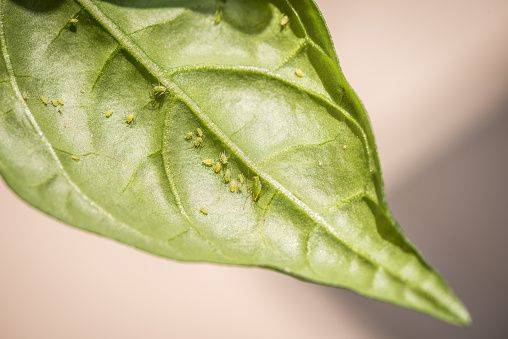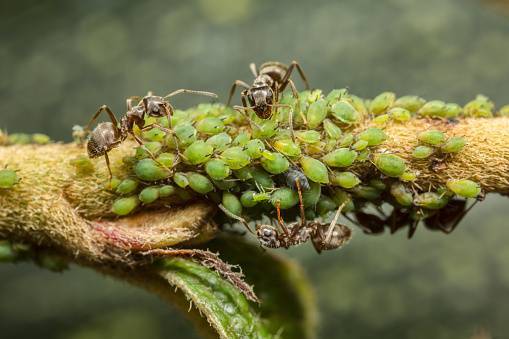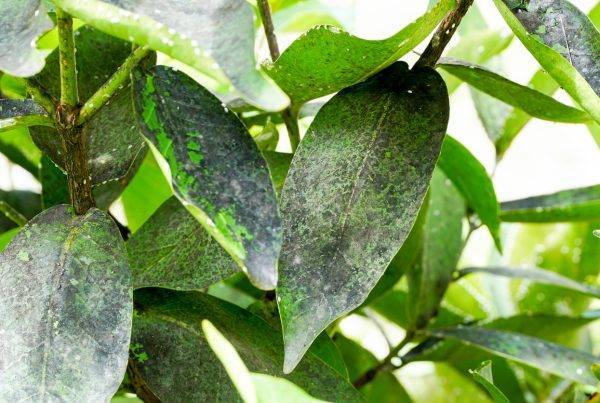Aphids are a common pest on houseplants. Find out everything you need to know about these pests in this article.
| What Are They | What They Do | Why are they on my plant || Identify |Treat | Prevent

What are Aphids?
Aphids are small soft bodied pests. They can be between 1-7mm and range in colour from green, black, brown, yellow, grey or red. Their life cycle is approx 30 days. With the wingless females being able to reproduce within 4-10 days and can each produce 50-100 offspring each. These pests are prolific and can reproduce faster than many other insects. The females produce live young asexually. At the end of the season they reproduce with the males and then lay eggs which will over winter until the conditions become favorable again.
What do Aphids do?
As with many other pests suck on the sap of your plants. They also secrete a honeydew substance which can lead to other problems like ants and sooty mold. Damage shows as curling, misshapen or yellowing leaves.
Why are they on my plant?
They attack plants that are weakened or stressed so improper care can often lead to these pests. They are also attracted to new growth on plants.
If you have ants, they may very well bring them onto your houseplants. They farm both Aphids and Mealybugs as the honeydew secretions they produce are a favored meal by ants!
How to Identify Aphids
They can be quite difficult to see with the naked eye. Sticky leaves are a common indicator of these soft bodied insects. If you do notice some sticky leaves, check carefully for aphids. Once their numbers have grown they to tend to cluster together in one spot making them easier to identify.

Treatment
A strong spray of water is often enough to get rid of them.
Weekly treatment of Neem Oil solution is effective against these soft bodied insects.
If you have seen ants on your plant, consider some pest treatment for them as otherwise the cycle may repeat itself!
Preventing Aphids
Using a Neem oil solution to clean your plants monthly is a great way to prevent many pests, it also gives you the chance to closely inspect your plants so that you can spot any pests before they get out of control.






